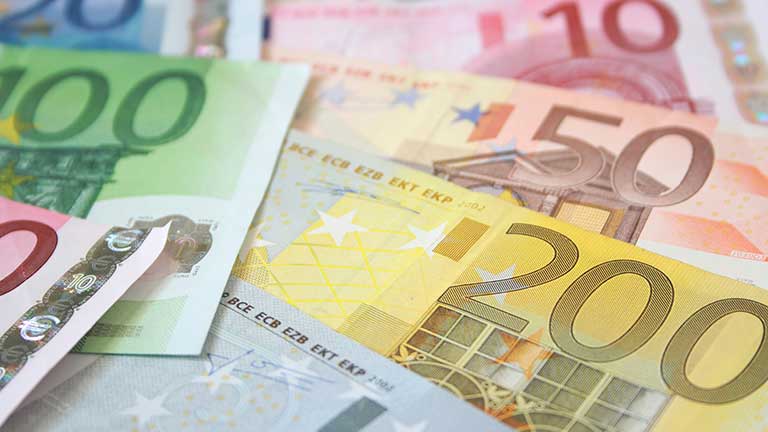The 2021 budget continues the government’s high spending, although some stimulus measures are due to expire at the end of this year.
IMF staff urged the German authorities to “stand ready” to introduce new measures, such as grants to firms, expediting climate investment or reducing social security contributions from low-income workers, if conditions worsen, particularly in the labour market.
“While public debt will increase in the near term, it remains sustainable across multiple stress scenarios and should not pose an obstacle to vigorous fiscal policy action,” the economists said.
German public debt reduced steadily between 2012 and 2019, from 81% to 60% of GDP.
Official projections suggest the response to Covid-19 will see that figure jump to around 77% by the end of 2020.
Germany, Europe’s largest economy, experienced an “unprecedented” contraction in the second quarter, but supportive policies helped foster a stronger-than-expected rebound in the third, the IMF said.
The fiscal guarantee packages announced in March and June were worth more than 30% of GDP, making the German response to the pandemic among the largest in Europe.
The government increased spending on health services, extended unemployment benefits, cut VAT and boosted green investment, among many other measures.
“But the resurgence of infections, and the new lockdown, demonstrate the continuing challenge of reopening the economy while keeping the virus in check,” the IMF staff warned.
“A failure to bring new infection waves under control could necessitate stricter and longer-lasting lockdowns.”
The German economy is projected to shrink by about 5.5% in 2020, with output not returning to its pre-crisis level until 2022.
The recovery could be made more difficult if more shocks, such as trade wars or a no-deal end to the Brexit transitionary period, are felt in the global or European economy, but faster-than-expected progress on a vaccine might help speed it up.














